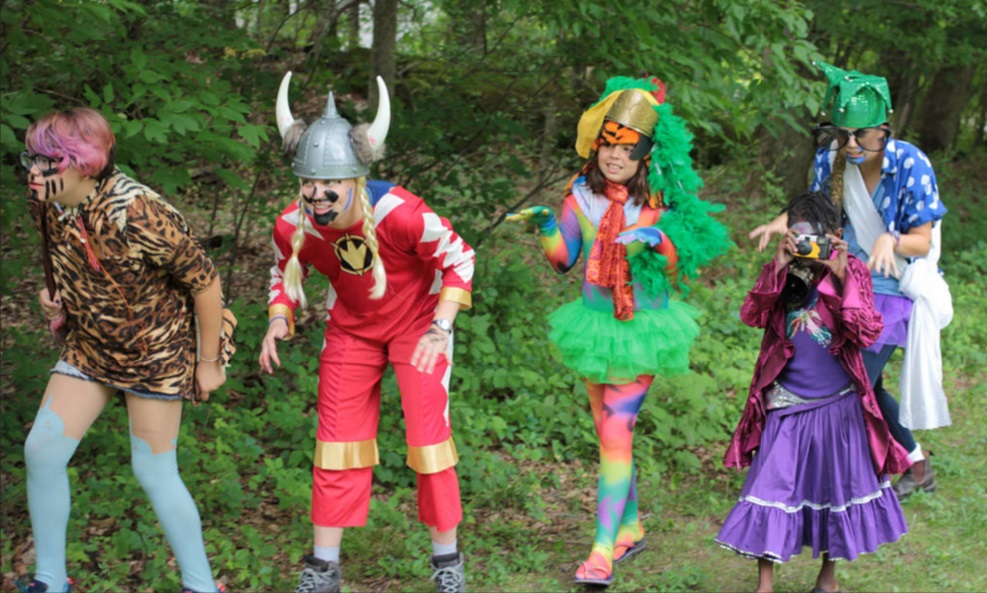Leadership Lessons from a 1st Grader
Leadership Lessons from a 1st Grader
Since becoming a Dad I have learned more about kids, myself, and leadership than all my years in the field. That might be an obvious statement to some, but for me I’m constantly surprised by where I learn these lessons. It’s not from the places you would expect. My daughter is currently in 1st grade. I have learned more about leadership and organizational management in the 5-minute walk home everyday in the afternoon with her, than a career as a leader and manager.
Here are some of the ideas she and her teacher, Mrs. Joseph, have taught me.
Finish Work Fridays.
Me: What are you excited about for today?
Linnea: It’s Finish Work Friday!!
Me: What’s that?
Linnea: Well, on Friday you get to finish all the work you didn’t get to finish during the week. If you finish everything you get to have a free choice. I mean, the free choice has to be something like work, but it’s so much more fun because you get to choose it.
Brilliant. There are so many amazing leadership and management ideas here. We can all identify with the idea that “it’s so much more fun because you get to choose it.” When you feel like you have some control, you tend to pick things that you are interested in, attracted to, or have some strength in, also known as passion. If you can fill your day, or even just some of one day with work you are more passionate about, you will be more effective at your work and a happier person. Happy people are better to be around and will boost the productivity of your entire team, not to mention they will live longer, have more friends, and be more loyal (enter citation of the tons of research done on these ideas).
There are also some pretty amazing time management ideas built into Finish Work Fridays. We live crazy lives, packed with busy-ness, meetings, and urgent “things to do.” I have yet to meet the person that has mastered their to-do list. Mostly because that isn’t really the nature of a to-do list, but also because we are terrible at estimating how much time something will take. What if we had a whole day dedicated to finishing, wrapping up, and “shipping” the things we have spent our brain-power on all week? I realize that not every task is finish-able like this, but many are. If you’re like me, you just take that unfinished task and move it on your calendar to the next available space (hopefully prior to the deadline) and keep doing that until it’s done. Well, how about if we try to minimize our task list, to-do list, and calendar appointments on Friday so we have some built in time to manage this.
The last thing that really jumped out at me about Finish Work Friday is the self-directed nature of it. Almost no one likes to be told what to do. Yes, we definitely all need instruction and training so we can perform our job duties and responsibilities. And yes, some jobs require constant or better yet consistent monitoring by managers and supervisors. But mostly, people would like to be given some direction, then given some space to accomplish the task or responsibility. Assuming there is the right support and resources for them to do it, the expectation can then be made that they will finish the task in a given time frame. Finish Work Friday seems to be a great tool to empower employees and to decrease micro-managing.
Line leaders.
So everyone in Linnea’s class has a line number. They all know when they are coming in from recess or heading down the hall to the art room, where they belong in the line. Every day a new kid gets to be the line leader, obviously a coveted spot for a 1st grader. It seems pretty basic, but imagine if everyone in your organization knew where they were supposed to be in the proverbial ‘line’ and also had the opportunity to be the leader. What would that look like? I think it means that everyone would have a good idea of how their work, their job, and they themselves fit into the overall mission of the organization. Whether that’s to interface with customers, distribute goods and services, answer the phones, or anything else, the idea that everyone “knows where they belong in line” really means that they know they have a spot and that spot is important.
I’m not talking about hierarchy and I’m not talking about comparing relative levels of importance, because those things are usually an executive illusion anyway. The best example I have of this is from my wife’s work. She is a psychologist at a major University. I once asked her who the most important person was in her office of 50+ people. Her immediate answer was the front desk staff. They know everything, have their finger on the pulse of everything, do all the scheduling, and know where everything is. The point is that on an organizational chart those front desk staff would be pretty far down the page, but in real life they are key to the effective functioning of their office, and I hope they know that.
Leadership should be a shared responsibility. Of course it is someone’s job to be the “leader” and they may even have a title that says as much. However, we all know that everyone has a space, topic, event, situation, etc. that they would be a very effective leader. Whether that would be randomly assigning someone to lead your weekly staff meeting, take on a new project group, develop a new customer relationship strategy, give a speech at an event, or anything else, there are opportunities everyday to be the “line leader.”
Class jobs
Everyone in Linnea’s class has a job. Those jobs rotate every few weeks so by the end of the year every kid will have done most jobs. There is even a job called “substitute teacher” which is to fill in for anyone that might be out on a given day. In fact, Linnea told me that that job is one of the best because some days you “get to do like 3 jobs!” Never mind the 7 yr old enthusiasm for more work, the most impressive part of this is the idea of community responsibility. It’s more than just being a student, you have responsibility to the classroom as a community.
Think about how powerful this would be in your camp or organization if everyone had an additional responsibility to the community. It doesn’t just have to be crabby Janice from accounting (see John Oliver) that always throws away your leftovers from the staff kitchen, it should be everyone taking some small responsibility for making your camp or organization better for everyone. Take some time to think about what those jobs could be. Better yet, bring it up at a staff meeting, make a list of things that people want to do (or have done), then create and protect some time for them to do it on a rotating basis.
We all know we take better care of the things we love, maybe we could engender more loyalty and responsibility for the organization by learning to love it a bit more by taking care of it.
Specials.
I pick up Linnea every day from school. It’s about a 5-minute walk home. One of the first things out of my mouth is to ask how her day was. Everyday, without fail, she lists off her “specials” - some combination of gym, art, music, library, and media (which is computers and programming). I noticed this pattern last year and when I asked her about why she likes those so much she told me, “they are called ‘specials’ and you do different things!”
That idea has held true, now mostly through her second year doing them. So what’s in a name? Evidently everything. Just calling these classes something different seems to elevate them (not to mention they are called special). Maybe we can try to label things differently, just to see if it makes a difference. What are some of the worst parts of the day? Meetings, email, interruptions, other people’s emergencies, any question or email from the accountant, and so many other things.
Let’s take meetings. Why ‘meetings’? Everybody hates meetings. How about a huddle, idea exchange, briefing session, policy and/or procedure reminder, budget update, roles clarification, or social hour? All I did was go back through the agendas of the last few staff meetings I have had and just named the major agenda item instead of calling it a meeting. I understand that you may not actually want to go to a “briefing session” or “policy reminder” any more than a meeting, but at least you could be more emotionally and mentally prepared just seeing those pop up on your calendar, than “staff meeting.”
What about the other part of “specials”? Which Linnea said was “doing different things.” Sounds like a pretty basic creativity strategy for keeping people engaged. Do something different. At your next “meeting” (which I hope you never have again), get out some legos and build something for the first 5 minutes. Not only is it fun and social (during which you’ll probably learn more about your team than any actual meeting), but new research in creativity says it will actually kick start the meeting with new energy, fresh ideas, and new perspectives. For long meetings, maybe you should have a stretch or mandatory switch seats moment. How about a quick raffle or a game of rock, paper, scissors? What about a meeting where you ask everyone to get their phones out and text each other candid reactions to what you are talking about? There are so many ways to change things up. Make them special!
I’m sure there are about a million more things I could learn from my daughter’s 1st grade experience. It’s nice to know that these kinds of leadership lessons are everywhere. We just have to start looking.




